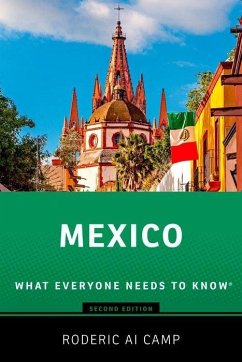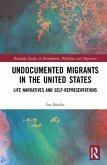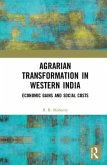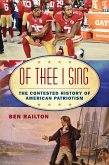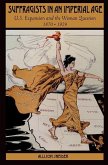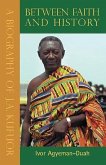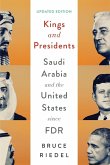20,99 €
inkl. MwSt.
Versandfertig in 1-2 Wochen

10 °P sammeln
- Broschiertes Buch
- Merkliste
- Auf die Merkliste
- Bewerten Bewerten
- Teilen
- Produkt teilen
- Produkterinnerung
- Produkterinnerung
This book makes punctuation more fun and easier to learn than traditional approaches do. It teaches the natural way, by example: each lesson begins with quotes that exemplify good punctuation and sentence structure. Quotations are humorous and informative, drawn from the words of notable figures--Shakespeare, Mark Twain, Jerry Seinfeld, Taylor Swift, Beyonce, Jennifer Lawrence, and many others. Short essays accompany each lesson, showing how each punctuation mark originated and how its use has altered over time. Correct punctuation is vital for clear, accurate, and natural writing. Anyone…mehr
Andere Kunden interessierten sich auch für
![Undocumented Migrants in the United States Undocumented Migrants in the United States]() Ina BatzkeUndocumented Migrants in the United States190,99 €
Ina BatzkeUndocumented Migrants in the United States190,99 €![Agrarian Transformation in Western India Agrarian Transformation in Western India]() B B MohantyAgrarian Transformation in Western India190,99 €
B B MohantyAgrarian Transformation in Western India190,99 €![Of Thee I Sing Of Thee I Sing]() Benjamin RailtonOf Thee I Sing46,99 €
Benjamin RailtonOf Thee I Sing46,99 €![Suffragists in an Imperial Age Suffragists in an Imperial Age]() Allison L. SneiderSuffragists in an Imperial Age30,99 €
Allison L. SneiderSuffragists in an Imperial Age30,99 €![Between Faith and History: A Biography of J.A. Kufuor Between Faith and History: A Biography of J.A. Kufuor]() Ivor Agyeman-DuahBetween Faith and History: A Biography of J.A. Kufuor33,99 €
Ivor Agyeman-DuahBetween Faith and History: A Biography of J.A. Kufuor33,99 €![Kings and Presidents Kings and Presidents]() Bruce RiedelKings and Presidents35,99 €
Bruce RiedelKings and Presidents35,99 €![The Presidency of Ulysses S. Grant The Presidency of Ulysses S. Grant]() Paul KahanThe Presidency of Ulysses S. Grant24,99 €
Paul KahanThe Presidency of Ulysses S. Grant24,99 €-
-
-
This book makes punctuation more fun and easier to learn than traditional approaches do. It teaches the natural way, by example: each lesson begins with quotes that exemplify good punctuation and sentence structure. Quotations are humorous and informative, drawn from the words of notable figures--Shakespeare, Mark Twain, Jerry Seinfeld, Taylor Swift, Beyonce, Jennifer Lawrence, and many others. Short essays accompany each lesson, showing how each punctuation mark originated and how its use has altered over time. Correct punctuation is vital for clear, accurate, and natural writing. Anyone preparing a course assignment, applying for a job or for college admission, or doing any other formal writing needs to know the standard conventions of punctuation. Yet many people have never been taught how to punctuate. A necessary addition to any writer's bookshelf, this enjoyable book will teach readers to punctuate effectively and confidently--through over 500 memorable quotes and clear explanations of the rules.
Hinweis: Dieser Artikel kann nur an eine deutsche Lieferadresse ausgeliefert werden.
Hinweis: Dieser Artikel kann nur an eine deutsche Lieferadresse ausgeliefert werden.
Produktdetails
- Produktdetails
- Verlag: Oxford University Press, USA
- Seitenzahl: 252
- Erscheinungstermin: 7. November 2017
- Englisch
- Abmessung: 210mm x 140mm x 15mm
- Gewicht: 350g
- ISBN-13: 9780190494179
- ISBN-10: 0190494174
- Artikelnr.: 47972411
- Herstellerkennzeichnung
- Libri GmbH
- Europaallee 1
- 36244 Bad Hersfeld
- gpsr@libri.de
- Verlag: Oxford University Press, USA
- Seitenzahl: 252
- Erscheinungstermin: 7. November 2017
- Englisch
- Abmessung: 210mm x 140mm x 15mm
- Gewicht: 350g
- ISBN-13: 9780190494179
- ISBN-10: 0190494174
- Artikelnr.: 47972411
- Herstellerkennzeichnung
- Libri GmbH
- Europaallee 1
- 36244 Bad Hersfeld
- gpsr@libri.de
Roderic Ai Camp is Philip M. McKenna Professor of the Pacific Rim at Claremont McKenna College and serves on the Advisory Board of the Mexican Institute at the Woodrow Wilson Center for International Scholars in the Smithsonian Institution. His books include Politics in Mexico and The Metamorphosis of Leadership in a Democratic Mexico.
* ACKNOWLEDGMENTS
* POLITICAL MAP OF MEXICO
* INTRODUCTION
* PART I MAJOR ISSUES FACING MEXICO TODAY
* Chapter 1: Security and Violence in Mexico
* Why does Mexico have so much drug violence today?
* Has Mexico always had a drug problem?
* Which areas of Mexico are most affected by drug violence, who are the
primary targets, and does the violence spill across the border?
* How are Mexico's security problems America's problems?
* What is the origin of the drug cartels and which organizations are
the major cartels?
* What role has Mexico played in the U.S. Northern Command?
* What do Mexicans consider to be the most important issues facing the
country?
* Does Mexico exercise political sovereignty throughout the republic?
* Chapter 2: Mexico's Economic Development
* How poor is Mexico?
* How is Mexico addressing its poverty?
* What is the economic relationship between Mexico and the United
States?
* What is the impact of NAFTA on Mexico?
* What is the state of Mexico's economy today?
* What kind of economic model does Mexico follow?
* What does the Mexican economic model teach us about development?
* Why is Mexico City so polluted and can these conditions be altered?
* How has Mexico addressed domestic and cross-border environmental
issues?
* Chapter 3: Mexico's Political Development
* When did Mexico become democratic?
* How democratic is Mexico?
* Why did Mexico make the democratic transition so slowly?
* What can Mexico teach us about civil-military relations?
* Why has Mexico been so stable since the 1930s?
* What is the impact of the United States on Mexico's political
development and democratization?
* Chapter 4: Foreign Relations with the United States
* What is the impact of geography on Mexico?
* What has happened with immigration to the United States?
* Could the International Boundary and Water Commission serve as an
institutional model for other issues with the United States?
* What can the United States do to help Mexico?
* How has Mexico influenced the United States economically?
* Chapter 5: Mexico's Social Development
* How unequal is Mexican development and what are the social
consequences?
* What is the current status of indigenous Mexicans?
* What are Mexican attitudes toward global environmental issues?
* PART II HISTORICAL LEGACIES
* Chapter 6: Mexico's Colonial Heritage
* How did the Spanish viceroys shape Mexico's political heritage in the
19th and 20th centuries?
* What was the relationship between church and state in Mexico and why
was it so different from that of the United States?
* What consequences did the colonial relationship between church and
state have for the 19th and 20th centuries?
* What is the most important heritage of Spain's economic system in
Mexico?
* How were social class relations determined by colonial experiences?
* Chapter 7: The National Period and the Rise of Liberal-Conservative
Conflicts
* What are the long-term consequences of Liberal-Conservative conflicts
in Mexico?
* Who started the Mexican-American War and how did it affect relations
with the United States?
* Who was Benito Juárez?
* What was the War of the Reform?
* Why was the Constitution of 1857 so important?
* Who was Porfirio Díaz and what was the Porfiriato?
* What were the long-term consequences of the Porfiriato for the 20th
century?
* Chapter 8: The Mexican Revolution and a New Political Model for
Mexico
* THE MEXICAN REVOLUTION
* What were the causes of the Mexican Revolution of 1910?
* Who was Francisco I. Madero?
* Who really was Pancho Villa?
* Who benefited most from the Mexican Revolution?
* Could Mexico have achieved changes in its structures through peaceful
means instead of violence?
* How did the revolution alter political institutions and
civil-military relations?
* What was the attitude of the United States toward the revolution?
* What is the Constitution of 1917?
* What was the cultural impact of the Mexican Revolution on painting,
music, and literature?
* THE EVOLUTION OF MODERN POLITICAL STRUCTURES AFTER 1920
* Why did the assassination of President-elect Álvaro Obregón alter
Mexico's political future?
* What was the influence of Plutarco Elías Calles on the formation of a
modern Mexican state?
* What is the National Revolutionary Party (PNR)?
* Who was Lázaro Cárdenas and how did he influence Mexico's political
model?
* Why did Mexico nationalize the petroleum industry in 1939?
* Did Mexico participate in World War II?
* When did civilian leadership take control of the Mexican political
system?
* What is the Alemán generation and what were its consequences for
Mexican politics?
* What is the PRI?
* What is the Mexican economic miracle?
* What is the PAN?
* THE DECLINE OF THE PRI AND THE MEXICAN MODEL
* What was the Tlatelolco student massacre in 1968 and what were its
long-term political consequences?
* What was the "Dirty War" in Mexico?
* What was the impact of the 1964 electoral reforms?
* What were the leading political characteristics of Mexico's
semi-authoritarian model?
* What were the consequences of the nationalization of the banks in
1982?
* Did Mexico's economic woes in the 1980s have significant political
consequences?
* Chapter 9: Mexico's Democratic Transition
* How did Carlos Salinas alter the Mexican political model?
* Why is the presidential election of 1988 a benchmark for democracy in
Mexico? 1
* Who is Cuauhtémoc Cárdenas and what is the PRD?
* What is NAFTA and how did Carlos Salinas change Mexico's economic
model?
* Who are the technocrats?
* When did an opposition party win its first governorship in Mexico?
* What was the Zapatista uprising of 1994 and what were its political
consequences?
* What were the consequences of the Zapatistas for civil-military
relations?
* Why is the presidential election of 1994 considered a second
benchmark in the democratic transition?
* What was the role of the Catholic Church in the 1994 presidential
race?
* What were the consequences of the assassination of the PRI
presidential candidate Luis Donaldo Colosio in 1994?
* How did President Zedillo contribute to the democratic transition?
* What is the Mexican bailout?
* PART III MEXICO'S PRESENT AND FUTURE
* Chapter 10: Mexico's Democratic Consolidation
* POLITICS OF DEMOCRACY
* Why was the 2000 presidential race essential to Mexico's
democratization?
* Who is Vicente Fox?
* What was the Transparency Law?
* What is "Amigos de Fox"?
* What was the role of the private sector in the democratic
consolidation?
* What are the most important interest groups?
* What was the role of the media in the process of democratic
consolidation?
* What role did intellectuals play in Mexico's democratization?
* FURTHER CONSOLIDATION
* What happened in the 2006 presidential race and how did it strengthen
Mexican political institutions?
* Why did Felipe Calderón win the election?
* Who is Manuel Andrés López Obrador?
* Why did PRI win the 2012 Presidential Election?
* What is the National Electoral Institute?
* What do the Mexican people think about the government's war on drugs?
* What impact does the army's mission against drug cartels have on
civil-military relations?
* How do Mexicans define democracy and how committed are they to
democratic governance?
* What do Mexicans expect from democracy?
* What is the Pact for Mexico?
* Chapter 11: Cultural, Economic, and Social Developments
* What are Mexican religious beliefs and religious relationships?
* How is the drug war influencing cultural and religious behavior?
* What are Mexican attitudes toward gender roles?
* How tolerant are Mexicans of minority groups?
* What is Mexico's impact on cultural trends in the United States?
* Chapter 12: What Lies Ahead?
* CHRONOLOGY OF MEXICAN PRESIDENTS, 1964-2012
* SELECTED SUGGESTED READINGS IN ENGLISH
* INDEX
* POLITICAL MAP OF MEXICO
* INTRODUCTION
* PART I MAJOR ISSUES FACING MEXICO TODAY
* Chapter 1: Security and Violence in Mexico
* Why does Mexico have so much drug violence today?
* Has Mexico always had a drug problem?
* Which areas of Mexico are most affected by drug violence, who are the
primary targets, and does the violence spill across the border?
* How are Mexico's security problems America's problems?
* What is the origin of the drug cartels and which organizations are
the major cartels?
* What role has Mexico played in the U.S. Northern Command?
* What do Mexicans consider to be the most important issues facing the
country?
* Does Mexico exercise political sovereignty throughout the republic?
* Chapter 2: Mexico's Economic Development
* How poor is Mexico?
* How is Mexico addressing its poverty?
* What is the economic relationship between Mexico and the United
States?
* What is the impact of NAFTA on Mexico?
* What is the state of Mexico's economy today?
* What kind of economic model does Mexico follow?
* What does the Mexican economic model teach us about development?
* Why is Mexico City so polluted and can these conditions be altered?
* How has Mexico addressed domestic and cross-border environmental
issues?
* Chapter 3: Mexico's Political Development
* When did Mexico become democratic?
* How democratic is Mexico?
* Why did Mexico make the democratic transition so slowly?
* What can Mexico teach us about civil-military relations?
* Why has Mexico been so stable since the 1930s?
* What is the impact of the United States on Mexico's political
development and democratization?
* Chapter 4: Foreign Relations with the United States
* What is the impact of geography on Mexico?
* What has happened with immigration to the United States?
* Could the International Boundary and Water Commission serve as an
institutional model for other issues with the United States?
* What can the United States do to help Mexico?
* How has Mexico influenced the United States economically?
* Chapter 5: Mexico's Social Development
* How unequal is Mexican development and what are the social
consequences?
* What is the current status of indigenous Mexicans?
* What are Mexican attitudes toward global environmental issues?
* PART II HISTORICAL LEGACIES
* Chapter 6: Mexico's Colonial Heritage
* How did the Spanish viceroys shape Mexico's political heritage in the
19th and 20th centuries?
* What was the relationship between church and state in Mexico and why
was it so different from that of the United States?
* What consequences did the colonial relationship between church and
state have for the 19th and 20th centuries?
* What is the most important heritage of Spain's economic system in
Mexico?
* How were social class relations determined by colonial experiences?
* Chapter 7: The National Period and the Rise of Liberal-Conservative
Conflicts
* What are the long-term consequences of Liberal-Conservative conflicts
in Mexico?
* Who started the Mexican-American War and how did it affect relations
with the United States?
* Who was Benito Juárez?
* What was the War of the Reform?
* Why was the Constitution of 1857 so important?
* Who was Porfirio Díaz and what was the Porfiriato?
* What were the long-term consequences of the Porfiriato for the 20th
century?
* Chapter 8: The Mexican Revolution and a New Political Model for
Mexico
* THE MEXICAN REVOLUTION
* What were the causes of the Mexican Revolution of 1910?
* Who was Francisco I. Madero?
* Who really was Pancho Villa?
* Who benefited most from the Mexican Revolution?
* Could Mexico have achieved changes in its structures through peaceful
means instead of violence?
* How did the revolution alter political institutions and
civil-military relations?
* What was the attitude of the United States toward the revolution?
* What is the Constitution of 1917?
* What was the cultural impact of the Mexican Revolution on painting,
music, and literature?
* THE EVOLUTION OF MODERN POLITICAL STRUCTURES AFTER 1920
* Why did the assassination of President-elect Álvaro Obregón alter
Mexico's political future?
* What was the influence of Plutarco Elías Calles on the formation of a
modern Mexican state?
* What is the National Revolutionary Party (PNR)?
* Who was Lázaro Cárdenas and how did he influence Mexico's political
model?
* Why did Mexico nationalize the petroleum industry in 1939?
* Did Mexico participate in World War II?
* When did civilian leadership take control of the Mexican political
system?
* What is the Alemán generation and what were its consequences for
Mexican politics?
* What is the PRI?
* What is the Mexican economic miracle?
* What is the PAN?
* THE DECLINE OF THE PRI AND THE MEXICAN MODEL
* What was the Tlatelolco student massacre in 1968 and what were its
long-term political consequences?
* What was the "Dirty War" in Mexico?
* What was the impact of the 1964 electoral reforms?
* What were the leading political characteristics of Mexico's
semi-authoritarian model?
* What were the consequences of the nationalization of the banks in
1982?
* Did Mexico's economic woes in the 1980s have significant political
consequences?
* Chapter 9: Mexico's Democratic Transition
* How did Carlos Salinas alter the Mexican political model?
* Why is the presidential election of 1988 a benchmark for democracy in
Mexico? 1
* Who is Cuauhtémoc Cárdenas and what is the PRD?
* What is NAFTA and how did Carlos Salinas change Mexico's economic
model?
* Who are the technocrats?
* When did an opposition party win its first governorship in Mexico?
* What was the Zapatista uprising of 1994 and what were its political
consequences?
* What were the consequences of the Zapatistas for civil-military
relations?
* Why is the presidential election of 1994 considered a second
benchmark in the democratic transition?
* What was the role of the Catholic Church in the 1994 presidential
race?
* What were the consequences of the assassination of the PRI
presidential candidate Luis Donaldo Colosio in 1994?
* How did President Zedillo contribute to the democratic transition?
* What is the Mexican bailout?
* PART III MEXICO'S PRESENT AND FUTURE
* Chapter 10: Mexico's Democratic Consolidation
* POLITICS OF DEMOCRACY
* Why was the 2000 presidential race essential to Mexico's
democratization?
* Who is Vicente Fox?
* What was the Transparency Law?
* What is "Amigos de Fox"?
* What was the role of the private sector in the democratic
consolidation?
* What are the most important interest groups?
* What was the role of the media in the process of democratic
consolidation?
* What role did intellectuals play in Mexico's democratization?
* FURTHER CONSOLIDATION
* What happened in the 2006 presidential race and how did it strengthen
Mexican political institutions?
* Why did Felipe Calderón win the election?
* Who is Manuel Andrés López Obrador?
* Why did PRI win the 2012 Presidential Election?
* What is the National Electoral Institute?
* What do the Mexican people think about the government's war on drugs?
* What impact does the army's mission against drug cartels have on
civil-military relations?
* How do Mexicans define democracy and how committed are they to
democratic governance?
* What do Mexicans expect from democracy?
* What is the Pact for Mexico?
* Chapter 11: Cultural, Economic, and Social Developments
* What are Mexican religious beliefs and religious relationships?
* How is the drug war influencing cultural and religious behavior?
* What are Mexican attitudes toward gender roles?
* How tolerant are Mexicans of minority groups?
* What is Mexico's impact on cultural trends in the United States?
* Chapter 12: What Lies Ahead?
* CHRONOLOGY OF MEXICAN PRESIDENTS, 1964-2012
* SELECTED SUGGESTED READINGS IN ENGLISH
* INDEX
* ACKNOWLEDGMENTS
* POLITICAL MAP OF MEXICO
* INTRODUCTION
* PART I MAJOR ISSUES FACING MEXICO TODAY
* Chapter 1: Security and Violence in Mexico
* Why does Mexico have so much drug violence today?
* Has Mexico always had a drug problem?
* Which areas of Mexico are most affected by drug violence, who are the
primary targets, and does the violence spill across the border?
* How are Mexico's security problems America's problems?
* What is the origin of the drug cartels and which organizations are
the major cartels?
* What role has Mexico played in the U.S. Northern Command?
* What do Mexicans consider to be the most important issues facing the
country?
* Does Mexico exercise political sovereignty throughout the republic?
* Chapter 2: Mexico's Economic Development
* How poor is Mexico?
* How is Mexico addressing its poverty?
* What is the economic relationship between Mexico and the United
States?
* What is the impact of NAFTA on Mexico?
* What is the state of Mexico's economy today?
* What kind of economic model does Mexico follow?
* What does the Mexican economic model teach us about development?
* Why is Mexico City so polluted and can these conditions be altered?
* How has Mexico addressed domestic and cross-border environmental
issues?
* Chapter 3: Mexico's Political Development
* When did Mexico become democratic?
* How democratic is Mexico?
* Why did Mexico make the democratic transition so slowly?
* What can Mexico teach us about civil-military relations?
* Why has Mexico been so stable since the 1930s?
* What is the impact of the United States on Mexico's political
development and democratization?
* Chapter 4: Foreign Relations with the United States
* What is the impact of geography on Mexico?
* What has happened with immigration to the United States?
* Could the International Boundary and Water Commission serve as an
institutional model for other issues with the United States?
* What can the United States do to help Mexico?
* How has Mexico influenced the United States economically?
* Chapter 5: Mexico's Social Development
* How unequal is Mexican development and what are the social
consequences?
* What is the current status of indigenous Mexicans?
* What are Mexican attitudes toward global environmental issues?
* PART II HISTORICAL LEGACIES
* Chapter 6: Mexico's Colonial Heritage
* How did the Spanish viceroys shape Mexico's political heritage in the
19th and 20th centuries?
* What was the relationship between church and state in Mexico and why
was it so different from that of the United States?
* What consequences did the colonial relationship between church and
state have for the 19th and 20th centuries?
* What is the most important heritage of Spain's economic system in
Mexico?
* How were social class relations determined by colonial experiences?
* Chapter 7: The National Period and the Rise of Liberal-Conservative
Conflicts
* What are the long-term consequences of Liberal-Conservative conflicts
in Mexico?
* Who started the Mexican-American War and how did it affect relations
with the United States?
* Who was Benito Juárez?
* What was the War of the Reform?
* Why was the Constitution of 1857 so important?
* Who was Porfirio Díaz and what was the Porfiriato?
* What were the long-term consequences of the Porfiriato for the 20th
century?
* Chapter 8: The Mexican Revolution and a New Political Model for
Mexico
* THE MEXICAN REVOLUTION
* What were the causes of the Mexican Revolution of 1910?
* Who was Francisco I. Madero?
* Who really was Pancho Villa?
* Who benefited most from the Mexican Revolution?
* Could Mexico have achieved changes in its structures through peaceful
means instead of violence?
* How did the revolution alter political institutions and
civil-military relations?
* What was the attitude of the United States toward the revolution?
* What is the Constitution of 1917?
* What was the cultural impact of the Mexican Revolution on painting,
music, and literature?
* THE EVOLUTION OF MODERN POLITICAL STRUCTURES AFTER 1920
* Why did the assassination of President-elect Álvaro Obregón alter
Mexico's political future?
* What was the influence of Plutarco Elías Calles on the formation of a
modern Mexican state?
* What is the National Revolutionary Party (PNR)?
* Who was Lázaro Cárdenas and how did he influence Mexico's political
model?
* Why did Mexico nationalize the petroleum industry in 1939?
* Did Mexico participate in World War II?
* When did civilian leadership take control of the Mexican political
system?
* What is the Alemán generation and what were its consequences for
Mexican politics?
* What is the PRI?
* What is the Mexican economic miracle?
* What is the PAN?
* THE DECLINE OF THE PRI AND THE MEXICAN MODEL
* What was the Tlatelolco student massacre in 1968 and what were its
long-term political consequences?
* What was the "Dirty War" in Mexico?
* What was the impact of the 1964 electoral reforms?
* What were the leading political characteristics of Mexico's
semi-authoritarian model?
* What were the consequences of the nationalization of the banks in
1982?
* Did Mexico's economic woes in the 1980s have significant political
consequences?
* Chapter 9: Mexico's Democratic Transition
* How did Carlos Salinas alter the Mexican political model?
* Why is the presidential election of 1988 a benchmark for democracy in
Mexico? 1
* Who is Cuauhtémoc Cárdenas and what is the PRD?
* What is NAFTA and how did Carlos Salinas change Mexico's economic
model?
* Who are the technocrats?
* When did an opposition party win its first governorship in Mexico?
* What was the Zapatista uprising of 1994 and what were its political
consequences?
* What were the consequences of the Zapatistas for civil-military
relations?
* Why is the presidential election of 1994 considered a second
benchmark in the democratic transition?
* What was the role of the Catholic Church in the 1994 presidential
race?
* What were the consequences of the assassination of the PRI
presidential candidate Luis Donaldo Colosio in 1994?
* How did President Zedillo contribute to the democratic transition?
* What is the Mexican bailout?
* PART III MEXICO'S PRESENT AND FUTURE
* Chapter 10: Mexico's Democratic Consolidation
* POLITICS OF DEMOCRACY
* Why was the 2000 presidential race essential to Mexico's
democratization?
* Who is Vicente Fox?
* What was the Transparency Law?
* What is "Amigos de Fox"?
* What was the role of the private sector in the democratic
consolidation?
* What are the most important interest groups?
* What was the role of the media in the process of democratic
consolidation?
* What role did intellectuals play in Mexico's democratization?
* FURTHER CONSOLIDATION
* What happened in the 2006 presidential race and how did it strengthen
Mexican political institutions?
* Why did Felipe Calderón win the election?
* Who is Manuel Andrés López Obrador?
* Why did PRI win the 2012 Presidential Election?
* What is the National Electoral Institute?
* What do the Mexican people think about the government's war on drugs?
* What impact does the army's mission against drug cartels have on
civil-military relations?
* How do Mexicans define democracy and how committed are they to
democratic governance?
* What do Mexicans expect from democracy?
* What is the Pact for Mexico?
* Chapter 11: Cultural, Economic, and Social Developments
* What are Mexican religious beliefs and religious relationships?
* How is the drug war influencing cultural and religious behavior?
* What are Mexican attitudes toward gender roles?
* How tolerant are Mexicans of minority groups?
* What is Mexico's impact on cultural trends in the United States?
* Chapter 12: What Lies Ahead?
* CHRONOLOGY OF MEXICAN PRESIDENTS, 1964-2012
* SELECTED SUGGESTED READINGS IN ENGLISH
* INDEX
* POLITICAL MAP OF MEXICO
* INTRODUCTION
* PART I MAJOR ISSUES FACING MEXICO TODAY
* Chapter 1: Security and Violence in Mexico
* Why does Mexico have so much drug violence today?
* Has Mexico always had a drug problem?
* Which areas of Mexico are most affected by drug violence, who are the
primary targets, and does the violence spill across the border?
* How are Mexico's security problems America's problems?
* What is the origin of the drug cartels and which organizations are
the major cartels?
* What role has Mexico played in the U.S. Northern Command?
* What do Mexicans consider to be the most important issues facing the
country?
* Does Mexico exercise political sovereignty throughout the republic?
* Chapter 2: Mexico's Economic Development
* How poor is Mexico?
* How is Mexico addressing its poverty?
* What is the economic relationship between Mexico and the United
States?
* What is the impact of NAFTA on Mexico?
* What is the state of Mexico's economy today?
* What kind of economic model does Mexico follow?
* What does the Mexican economic model teach us about development?
* Why is Mexico City so polluted and can these conditions be altered?
* How has Mexico addressed domestic and cross-border environmental
issues?
* Chapter 3: Mexico's Political Development
* When did Mexico become democratic?
* How democratic is Mexico?
* Why did Mexico make the democratic transition so slowly?
* What can Mexico teach us about civil-military relations?
* Why has Mexico been so stable since the 1930s?
* What is the impact of the United States on Mexico's political
development and democratization?
* Chapter 4: Foreign Relations with the United States
* What is the impact of geography on Mexico?
* What has happened with immigration to the United States?
* Could the International Boundary and Water Commission serve as an
institutional model for other issues with the United States?
* What can the United States do to help Mexico?
* How has Mexico influenced the United States economically?
* Chapter 5: Mexico's Social Development
* How unequal is Mexican development and what are the social
consequences?
* What is the current status of indigenous Mexicans?
* What are Mexican attitudes toward global environmental issues?
* PART II HISTORICAL LEGACIES
* Chapter 6: Mexico's Colonial Heritage
* How did the Spanish viceroys shape Mexico's political heritage in the
19th and 20th centuries?
* What was the relationship between church and state in Mexico and why
was it so different from that of the United States?
* What consequences did the colonial relationship between church and
state have for the 19th and 20th centuries?
* What is the most important heritage of Spain's economic system in
Mexico?
* How were social class relations determined by colonial experiences?
* Chapter 7: The National Period and the Rise of Liberal-Conservative
Conflicts
* What are the long-term consequences of Liberal-Conservative conflicts
in Mexico?
* Who started the Mexican-American War and how did it affect relations
with the United States?
* Who was Benito Juárez?
* What was the War of the Reform?
* Why was the Constitution of 1857 so important?
* Who was Porfirio Díaz and what was the Porfiriato?
* What were the long-term consequences of the Porfiriato for the 20th
century?
* Chapter 8: The Mexican Revolution and a New Political Model for
Mexico
* THE MEXICAN REVOLUTION
* What were the causes of the Mexican Revolution of 1910?
* Who was Francisco I. Madero?
* Who really was Pancho Villa?
* Who benefited most from the Mexican Revolution?
* Could Mexico have achieved changes in its structures through peaceful
means instead of violence?
* How did the revolution alter political institutions and
civil-military relations?
* What was the attitude of the United States toward the revolution?
* What is the Constitution of 1917?
* What was the cultural impact of the Mexican Revolution on painting,
music, and literature?
* THE EVOLUTION OF MODERN POLITICAL STRUCTURES AFTER 1920
* Why did the assassination of President-elect Álvaro Obregón alter
Mexico's political future?
* What was the influence of Plutarco Elías Calles on the formation of a
modern Mexican state?
* What is the National Revolutionary Party (PNR)?
* Who was Lázaro Cárdenas and how did he influence Mexico's political
model?
* Why did Mexico nationalize the petroleum industry in 1939?
* Did Mexico participate in World War II?
* When did civilian leadership take control of the Mexican political
system?
* What is the Alemán generation and what were its consequences for
Mexican politics?
* What is the PRI?
* What is the Mexican economic miracle?
* What is the PAN?
* THE DECLINE OF THE PRI AND THE MEXICAN MODEL
* What was the Tlatelolco student massacre in 1968 and what were its
long-term political consequences?
* What was the "Dirty War" in Mexico?
* What was the impact of the 1964 electoral reforms?
* What were the leading political characteristics of Mexico's
semi-authoritarian model?
* What were the consequences of the nationalization of the banks in
1982?
* Did Mexico's economic woes in the 1980s have significant political
consequences?
* Chapter 9: Mexico's Democratic Transition
* How did Carlos Salinas alter the Mexican political model?
* Why is the presidential election of 1988 a benchmark for democracy in
Mexico? 1
* Who is Cuauhtémoc Cárdenas and what is the PRD?
* What is NAFTA and how did Carlos Salinas change Mexico's economic
model?
* Who are the technocrats?
* When did an opposition party win its first governorship in Mexico?
* What was the Zapatista uprising of 1994 and what were its political
consequences?
* What were the consequences of the Zapatistas for civil-military
relations?
* Why is the presidential election of 1994 considered a second
benchmark in the democratic transition?
* What was the role of the Catholic Church in the 1994 presidential
race?
* What were the consequences of the assassination of the PRI
presidential candidate Luis Donaldo Colosio in 1994?
* How did President Zedillo contribute to the democratic transition?
* What is the Mexican bailout?
* PART III MEXICO'S PRESENT AND FUTURE
* Chapter 10: Mexico's Democratic Consolidation
* POLITICS OF DEMOCRACY
* Why was the 2000 presidential race essential to Mexico's
democratization?
* Who is Vicente Fox?
* What was the Transparency Law?
* What is "Amigos de Fox"?
* What was the role of the private sector in the democratic
consolidation?
* What are the most important interest groups?
* What was the role of the media in the process of democratic
consolidation?
* What role did intellectuals play in Mexico's democratization?
* FURTHER CONSOLIDATION
* What happened in the 2006 presidential race and how did it strengthen
Mexican political institutions?
* Why did Felipe Calderón win the election?
* Who is Manuel Andrés López Obrador?
* Why did PRI win the 2012 Presidential Election?
* What is the National Electoral Institute?
* What do the Mexican people think about the government's war on drugs?
* What impact does the army's mission against drug cartels have on
civil-military relations?
* How do Mexicans define democracy and how committed are they to
democratic governance?
* What do Mexicans expect from democracy?
* What is the Pact for Mexico?
* Chapter 11: Cultural, Economic, and Social Developments
* What are Mexican religious beliefs and religious relationships?
* How is the drug war influencing cultural and religious behavior?
* What are Mexican attitudes toward gender roles?
* How tolerant are Mexicans of minority groups?
* What is Mexico's impact on cultural trends in the United States?
* Chapter 12: What Lies Ahead?
* CHRONOLOGY OF MEXICAN PRESIDENTS, 1964-2012
* SELECTED SUGGESTED READINGS IN ENGLISH
* INDEX
